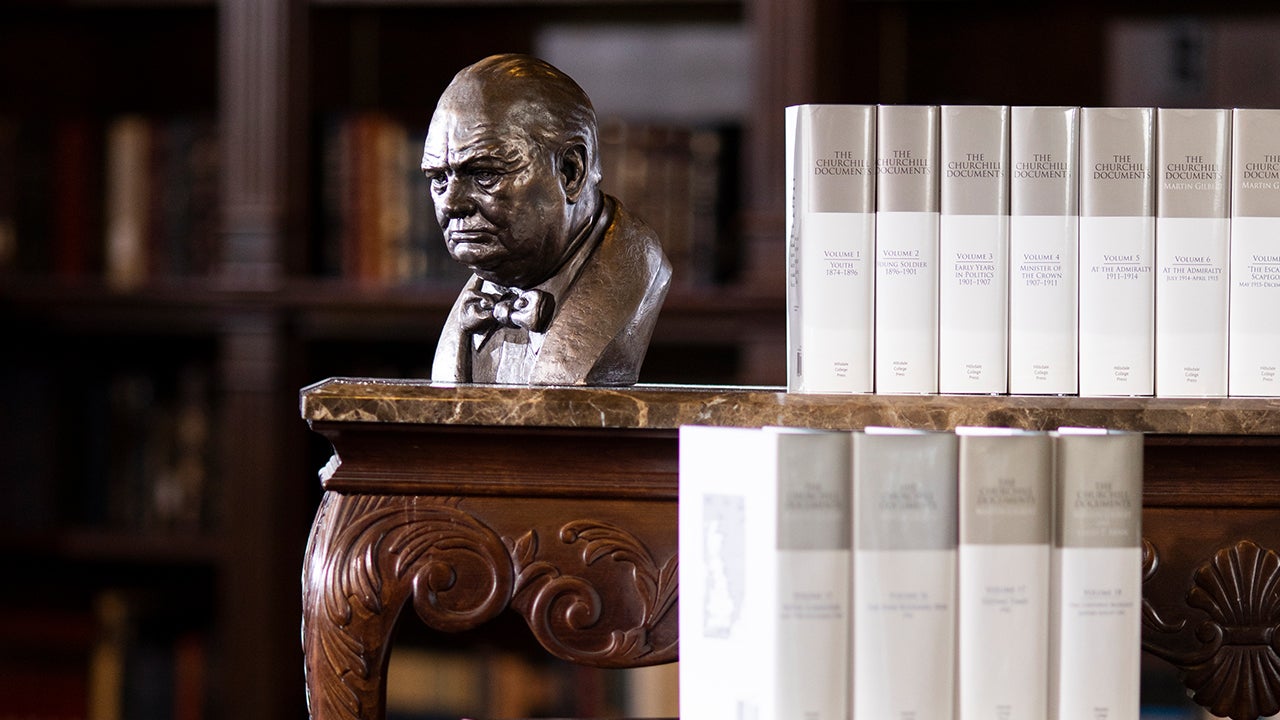
History
Winston Churchill and Statesmanship
6 lessons
4.5h total length
Create Your Account to Get Instant Access to “Winston Churchill and Statesmanship”
Examine the life of Winston Churchill in this free online course.
Lessons in this course

33:13
lesson 1
Why Study Churchill?
There are three principal reasons to study the life and writings of Winston Churchill. The first is that the study of Churchill teaches lessons about prudence, the virtue that enables human beings to make good choices in changing circumstances for the sake of living well. The second is that the best way to learn about statesmanship is to study the words and deeds of great statesmen, and Churchill—who left behind a voluminous written record—was one of the greatest. The third is that Churchill understood very well the unique features of modern life, including especially the mass effects brought about by the development of modern science.

32:43
lesson 2
The Problem of Modern War
Winston Churchill fought in several wars before the end of the 19th century. Noted for his courage in the midst of battle, he sought distinction in war so that he could enter politics upon his return. During this time, Churchill witnessed a shift—brought on by technological development—in the way wars were fought. Well before the World Wars, Churchill warned that major wars between peoples would bring about more death and destruction than ever before.

40:06
lesson 3
A Strategy for Modern War
Churchill believed that the challenge of modern war, which is a product of modern society, should be met by a grand strategy, guided by prudence—the characteristic virtue of the statesman. The statesman must consider not only the battlefield, but also many other important factors, such as alliances, timing, and psychology. Churchill, who worked to prevent war all his life, believed that an alliance of free peoples with strong militaries was the best deterrent in an age of nuclear weapons.

36:44
lesson 4
The Problem of Modern Politics
Churchill saw a threat to free society in the emergence of a modern political theory that encourages administration by experts, which is guided by modern science. Proponents of this new kind of politics sought to diminish the family, equalize economic outcomes in society, and replace parliamentary government with scientific administration. In British politics, the prime instance of this theory was socialist policy, against which Churchill fought all his life.

32:40
lesson 5
Churchill’s Plan for Freedom
Churchill believed that modern scientific advancements, while productive of many good things, could also potentially lead to the loss of freedom. He sought to counter this possibility by speaking out against socialism and by recruiting citizens to the cause of a free society. He also championed constitutionalism and social reform as means of increasing social stability and protecting free markets and property rights.

26:24
lesson 6
What Churchill Teaches Us about Our Time
Winston Churchill was a statesman of the first order, who confronted problems unique to an age of modern war and modern politics. Churchill was a staunch defender of constitutionalism and self-government, and he worked to protect the institutions and ideas that promoted such rule. Even though his times were marked by trials in war and in peace, Churchill was ever an optimist, telling Parliament in his final speech, “never flinch, never weary, never despair.”
Enroll in "Winston Churchill and Statesmanship" by clicking the button below.
What Current Students Are Saying
Takes the student through the full context of the course subject matter. Wonderful insight into how we strayed and its consequences and offers a solution.
Create your FREE account today!
All you need to access our courses and start learning today is your email address.